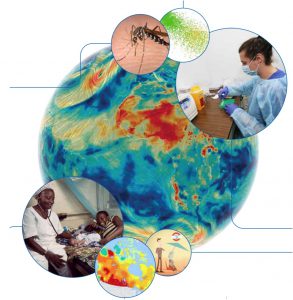 Using Climate Impact Science to Make Adaptation Decision-Making Smarter
Using Climate Impact Science to Make Adaptation Decision-Making Smarter
PlanAdapt has been selected to contribute to the SENSES project implemented by the Potsdam-Institute for Climate Impact Research (PIK), the International Institute for Applied Systems Analysis (IIASA), University of Applied Sciences Potsdam (FHP), Wageningen University (Wageningen UR), Stockholm Environment Institute (SEI). SENSES stands for “Climate Change ScENario SErviceS: Mapping the future”. It is funded as part of the “European Research Area for Climate Services” (so-called ERA4CS) under the European Union’s Horizon 2020 Framework Program. With the development of a new generation of climate change scenarios for informing the 6th Assessment Cycle of the IPCC and the implementation of the Paris Agreement, there is a renewed need to make climate change scenarios better accessible to decision-makers and stakeholders. The overarching goal of the SENSES project is to develop tools and approaches to make the new generation of climate change scenarios an integral part of climate services.
These tools and approaches will be combined to a tailor-made, user-determined Climate Scenario Toolkit including a unique collection of user-centered scenario visualization tools and co-creation techniques for three user groups: (a) national and international climate policy-makers; (b) regional climate scenario users, and (c) businesses, particularly financial businesses.
By participating in the SENSES project, PlanAdapt will further its expertise in integrating advances in climate impact science into smart decision-making for climate change adaptation. PlanAdapt experts will contribute to the creation of scenario knowledge ensuring it fits user needs. The project is structured around three main activities: (i) establishing user panels, identifying user needs and community building, (ii) developing techniques for the co-creation of climate change scenario knowledge that properly addresses user needs, (iii) design of user-centered scenario visualization tools.
So far, scenario analysis enjoys only limited use in adaptation planning in both, the public and the private sector. According to Vailles and Métivier (2019) by the Insitute for Climate Economics:
- Only 5% of companies indicate using scenario analysis to evaluate their climate-related risks and opportunities;
- Half of these companies are based in Europe;
- The use of climate-related scenario analysis is much more common among oil and gas companies and energy utilities than in other sectors of activity;
- Among companies that disclose carrying out a scenario analysis of their transition risks : about 40% indicate using tailored scenarios, in general internally designed and modelled, and only half explicitly mention using a 2°C or more ambitious scenario;
- Among companies that disclose carrying out a scenario analysis of their physical risks : about 25% indicate using external scenarios and tools, in most cases those put together by the IPCC;
- Overall, there seems to be confusions in the way climate-related scenarios are understood and used, and a need for guidance on this topic has been identified.
Also in the public sector, there is evidence that scenario analysis of future climate risks is rarely used in adaptation planning up to now (see a study by PlanAdapt and Climate Analytics on adaptation planning in the Caribbean Region).
